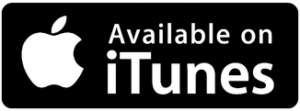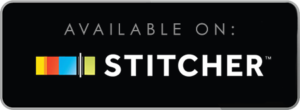Are you someone who is looking to transition into law? In this engaging podcast episode, Jim and Tyson sit down with Bill Gshwind of Minnesota Construction Law, who shares his unique journey into law after a 25-year tenure in business.
In this episode, Jim & Tyson interview Jonathan Hawkins, Outside General Counsel to law firms and owner of Law Firm GC. Jonathan is always seeking to avoid lawsuits, has litigated and tried contentious lawyer breakup cases. Listen as they talk about his journey having been through a law firm dissolution himself having an up close the issues that arise and the effects they can have on a law firm and a lawyer’s practice.
Register to MaxLawCon19, June 6 and 7 in St.Louis.
Reminder: Early bird pricing MaxlawCon expiring payment last day of February. After that price going up!
Please subscribe to our Youtube Channel
[DISPLAY_ULTIMATE_SOCIAL_ICONS]
[smart_track_player url="http://traffic.libsyn.com/maximumlawyer/Episode_133.mp3" social_linkedin="true" ]
Topics:
- About Jonathan
- Business lawyer for lawyers
- Represents lawyers and law firms
- Business related to an issue of a lawyer or a law firm can encounter
- More details
- Three types of law clients.
- 1)Counseling
- 2)Project based engagements/Set up partnerships and draft documents “Print ups - Documents all law firm should have”
- 3)Law firms breakup/Mitigation and law practice
- Grew up as a business litigator/Business divorces of other types
- Drafting agreements to avoid fights
- Bargaining work and legal out practice leave for experts to handle
- Representing lawyers/Lessons learned watching lawyers
- Father attorney/Handled many law firm brake ups in small town
- Father’s suggestion to look into large city
- Reading articles and cases
- Talking to everybody
- Lawyer friends asking for help
- Seeing lots of law firms from the inside/Different set ups and models
- Ideal Client
- Big firm/Big operation
- Small firm attorneys/Project based engagements
- Not big international firms/Have own in house team
- Reaching Jim and Tyson’s podcast
- Their podcast fan/Recommends
- Trying to build a team
- Perfect a subscription model
- Put together the value proposition for lawyers
- Vision of subscription and level provided > Go back to Joey Vitale’s interview
- Contacting him with daily issues
- Quarter program service
- Suggesting Jess Birken’ interview. Interesting subscription model and info product/Provides educational videos before encounter
- Suggesting Lee Rosen’s interview. Another subscription model option/Variation of podcast
- Get team together
- Farm out mitigation to another firm
- Delegating
- Taking on an attorney
- Rather work in business than court
- Working on finding a part time litigator
- Mitigation components
- Partner breakup/Each hires an attorney
- Lawsuit files and lawsuit allegations
- Getting a full time lawyer
- Farming out mitigation/Taking on an assistant/Basic guidance for subscription model
- Educating and communicating value proposition
- Drill out in what you are selling/Solution offered/Figure out people
- Firm brings in a young associate
- Gains experience and clients/Leaves and clients go with him
- “Clients always choose who they are going with”
- Provisions put in place/Slow process down
- Give law firm owner time to react
- Set fees in place/Agreement with attorneys
- Dean Jackson and Joe Polish > Entire profits of keeping a client/Educating before contact. Jonathan’s Lawyer education
- In person, CLE talks, lunches, periodic emails on various topics or website
- Lawyers spread word out
- Podcast idea > Telling story of reported cases/Train wrecks or disolutions between lawyers or how to avoid mistakes (Murder book podcast by Michael Connelly). Contact new attorneys and refer to business
Register for the MaxLawCon19! Reminder: Early bird pricing MaxlawCon expiring payment last day of February. After that price going up!
Please subscribe to our Youtube Channel
Thanks so much for listening to the show! If you want to know more about this and keep on maximizing your firm, please join our Facebook Group or like us on Facebook and comment!
You can also go to MaximumLawyer.com or, if you’d prefer, email us at: [email protected]
Jim’s hack: Listening to James Schramko /Make a green list/Signs for a good client
Jonathan’s hack: “Give up and loose” “Don’t read, don’t listen and don’t watch”/Negatives on the news
Tyson’s tip: Stop spending time on social media
//
Do you want to get on the show? Shoot us an email or message us!
The Maximum Lawyer Podcast. Partner up, and maximize your firm.
Guild Membership
Free Access to Stage 1 of Maximum Lawyer in Minimum Time
Sign Up Today!Customer Reviews
4.9 out of 5
Join Our Facebook Group
Enjoy Exclusive Access To Stage One Of The Maximum Lawyer In Minimum Time Course
Privacy Policy
This privacy policy has been compiled to better serve those who are concerned with how their ‘Personally Identifiable Information’ (PII) is being used online. PII, as described in US privacy law and information security, is information that can be used on its own or with other information to identify, contact, or locate a single person, or to identify an individual in context.
Please read our privacy policy carefully to get a clear understanding of how we collect, use, protect or otherwise handle your Personally Identifiable Information in accordance with our website.
What personal information do we collect from the people that visit our blog, website or app?
When ordering or registering on our site, as appropriate, you may be asked to enter your name, email address or other details to help you with your experience.
When do we collect information?
We collect information from you when you register on our site, place an order, subscribe to a newsletter, Use Live Chat, Open a Support Ticket or enter information on our site.
How do we use your information?
We may use the information we collect from you when you register, make a purchase, sign up for our newsletter, respond to a survey or marketing communication, surf the website, or use certain other site features in the following ways:
- To personalize your experience and to allow us to deliver the type of content and product offerings in which you are most interested.
- To improve our website in order to better serve you.
- To allow us to better service you in responding to your customer service requests.
- To quickly process your transactions.
- To send periodic emails regarding your order or other products and services.
- To follow up with them after correspondence (live chat, email or phone inquiries)







